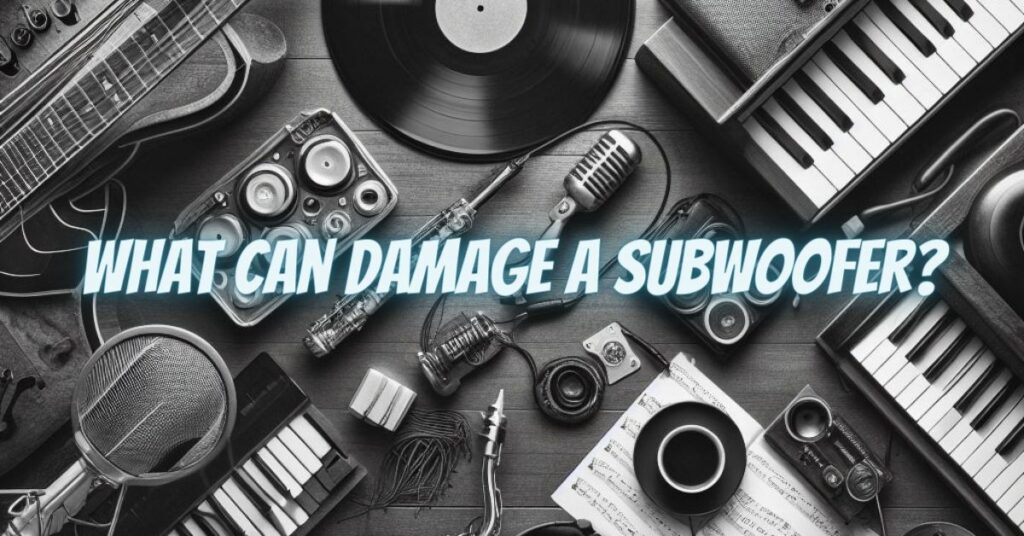Subwoofers are designed to reproduce low frequencies, but they can be damaged if they are not used properly. Here are some of the things that can damage a subwoofer:
Overpowering
One of the most common causes of subwoofer damage is overpowering. This happens when you send too much power to the subwoofer, which causes the voice coil to overheat and fail. To avoid overpowering your subwoofer, make sure that the amplifier you are using is not more powerful than the subwoofer itself. You should also avoid turning the volume up too high.
Underpowering
While over powering your subwoofer is the most common cause of damage, underpowering can also be harmful. When a subwoofer is underpowered, it has to work harder to produce the desired sound level. This can lead to overheating and failure. To avoid underpowering your subwoofer, make sure that your amplifier is powerful enough to drive it to the desired sound level.
Clipping
Clipping occurs when the amplifier is driven too hard and the signal distorts. This can damage the voice coil in the subwoofer. To avoid clipping, make sure that you are not turning the volume up too high. You should also use a high-pass filter to prevent the subwoofer from reproducing frequencies that are too low for it to handle.
Distortion
Distortion is another common cause of subwoofer damage. This can be caused by a number of factors, including clipping, improper amplifier settings, and bad source material. To avoid distortion, make sure that your amplifier is set up properly and that you are using high-quality source material.
Overheating
Subwoofers can also be damaged by overheating. This can happen if the subwoofer is not properly ventilated or if it is used in a hot environment. To avoid overheating, make sure that the subwoofer is well-ventilated and that it is not operated in a hot environment.
Physical damage
Subwoofers can also be damaged by physical damage, such as dropping them or hitting them with something. To avoid physical damage, be careful when handling your subwoofer.
Here are some additional tips for preventing subwoofer damage:
- Use a high-pass filter. A high-pass filter prevents the subwoofer from reproducing frequencies that are too low for it to handle. This can help to prevent distortion and damage.
- Set the gain properly. The gain of the amplifier should be set so that the subwoofer reaches the desired sound level without clipping.
- Use a limiter. A limiter can help to prevent clipping and distortion.
- Don’t push the subwoofer too hard. If the subwoofer is struggling to produce the desired sound level, turn the volume down.
- Keep the subwoofer clean. Dust and dirt can build up on the subwoofer and block the vents, which can lead to overheating. Clean the subwoofer regularly to remove dust and dirt.
By following these tips, you can help to prevent your subwoofer from being damaged.


